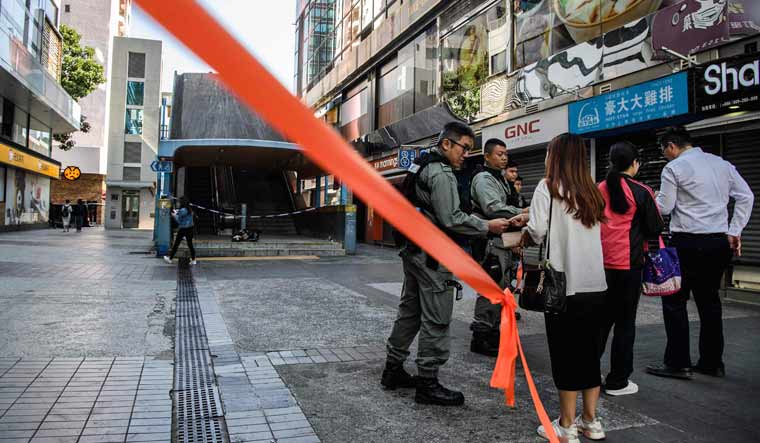On November 20, when the US Senate unanimously passed a bill supporting democracy in Hong Kong, Beijing did not respond immediately. But, China has threatened retaliation if the bill is signed into law by President Donald Trump, and state-run media warned Thursday the legislation would not prevent Beijing from intervening forcefully to stop the "mess" gripping the financial hub.
Hong Kong protesters, who have been holed up in a university that has been besieged for days, are holding their ground.
Chinese Communist Party's People's Daily newspaper, Global Times said, "If we take this US bill seriously and shrink from tackling riots, Hong Kong will suffer from an accelerated collapse of the rule of law and be erased from the modern world."
As the standoff between protesters in Hong Kong Polytechnic University and the police entered day five, there was a noticeable reduction in police presence. The standoff has emerged as the axis of the city's increasingly angry democratic movement.
Hong Kong's benchmark stock index fell 1.56 per cent in morning trade and other Asian markets also slid over fears that Congress's move could throw a spanner into the delicate US-China effort to reach a trade deal between the world's two largest economies.
With riot police gathered and garbage collectors cleaning trash, there is a siege and a clean-up in place at the university. On previous days, clashes between police and protesters armed with bow and arrows and Molotov cocktails caused injuries on both sides and caused many campus occupants to flee, with many of them being arrested by police.
A diehard group, however, have stayed back cooking up meals in a canteen from their dwindling supplies.
Makeshift signs at the campus warned people not to smoke near areas where Molotov cocktails were stockpiled.
Hong Kong's turmoil that has last nearly six months began with an extradition bill that has now been shelved. This revived fears that Beijing was slicing into the city's freedoms.
As part of showing anger and dissent, millions of citizens have taken to the streets or disrupted the transport network in a movement that snowballed into wider calls for free elections and an inquiry into alleged police brutality. The demands have been rebuffed by Hong Kong's Beijing-appointed leaders. The protestors have also demanded that the city's Chief Executive Carrie Lam steps down.
The new US bill would require an annual review of the city's semi-autonomous.
"If the bill becomes law, investors will be hesitant to take on the risk," Hao Hong, head of research at Bocom International, told Bloomberg News.
China has accused the United States of fuelling Hong Kong's protests, and China's state media made clear the government's anger over the Hong Kong democracy bill.
The ongoing movement has already tipped the financial hub's economy into recession and the threat of change in trade status brought fresh gloom.


